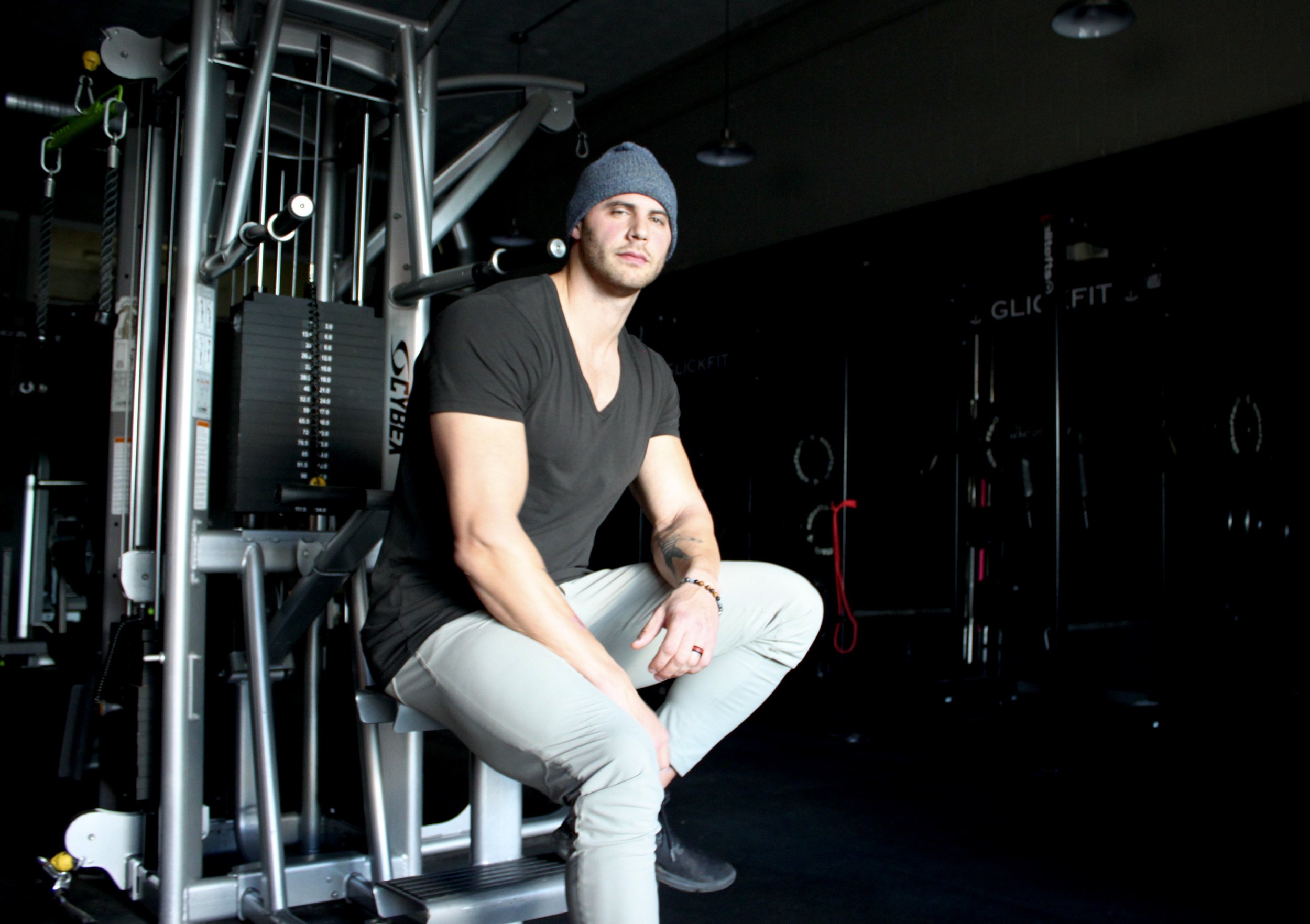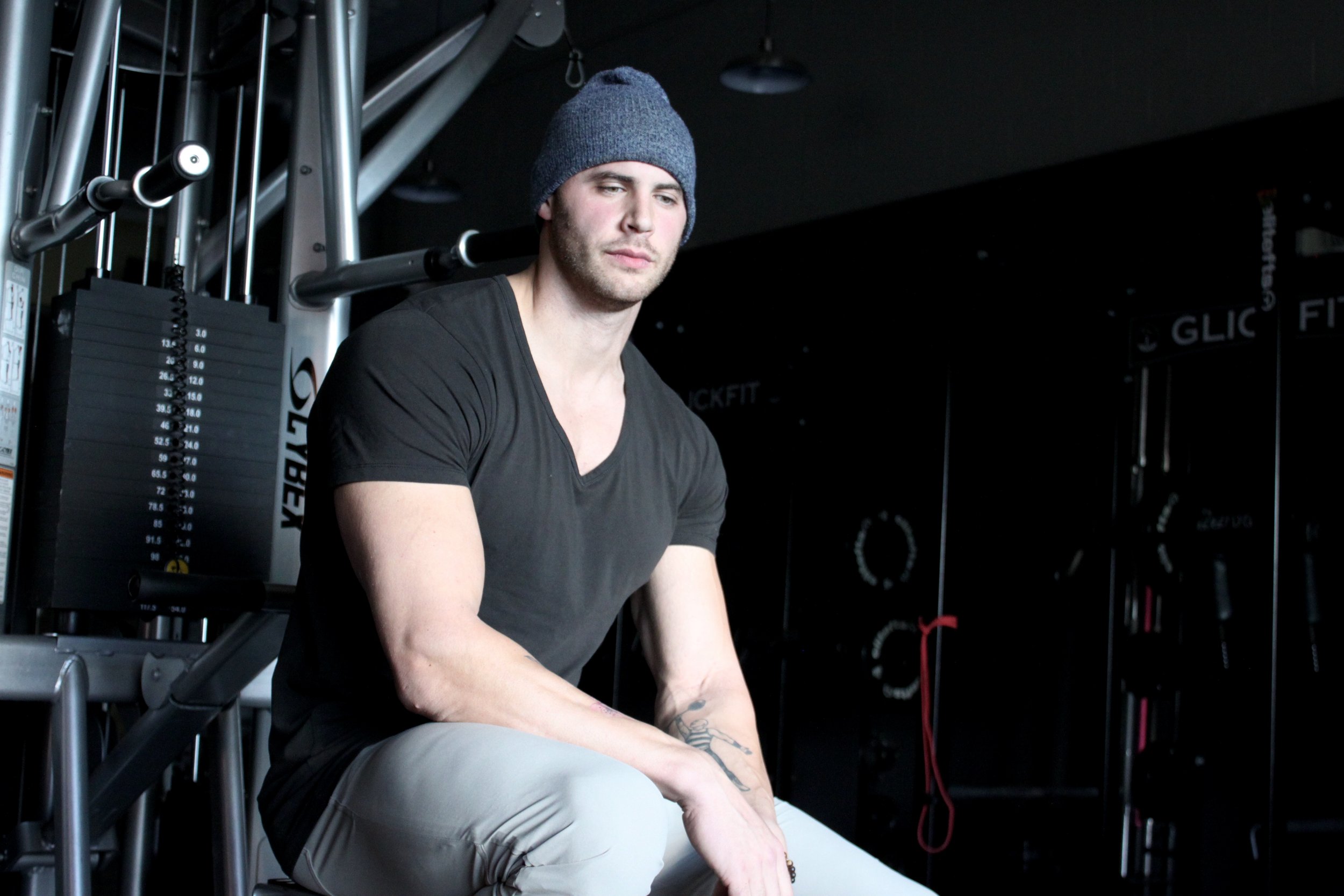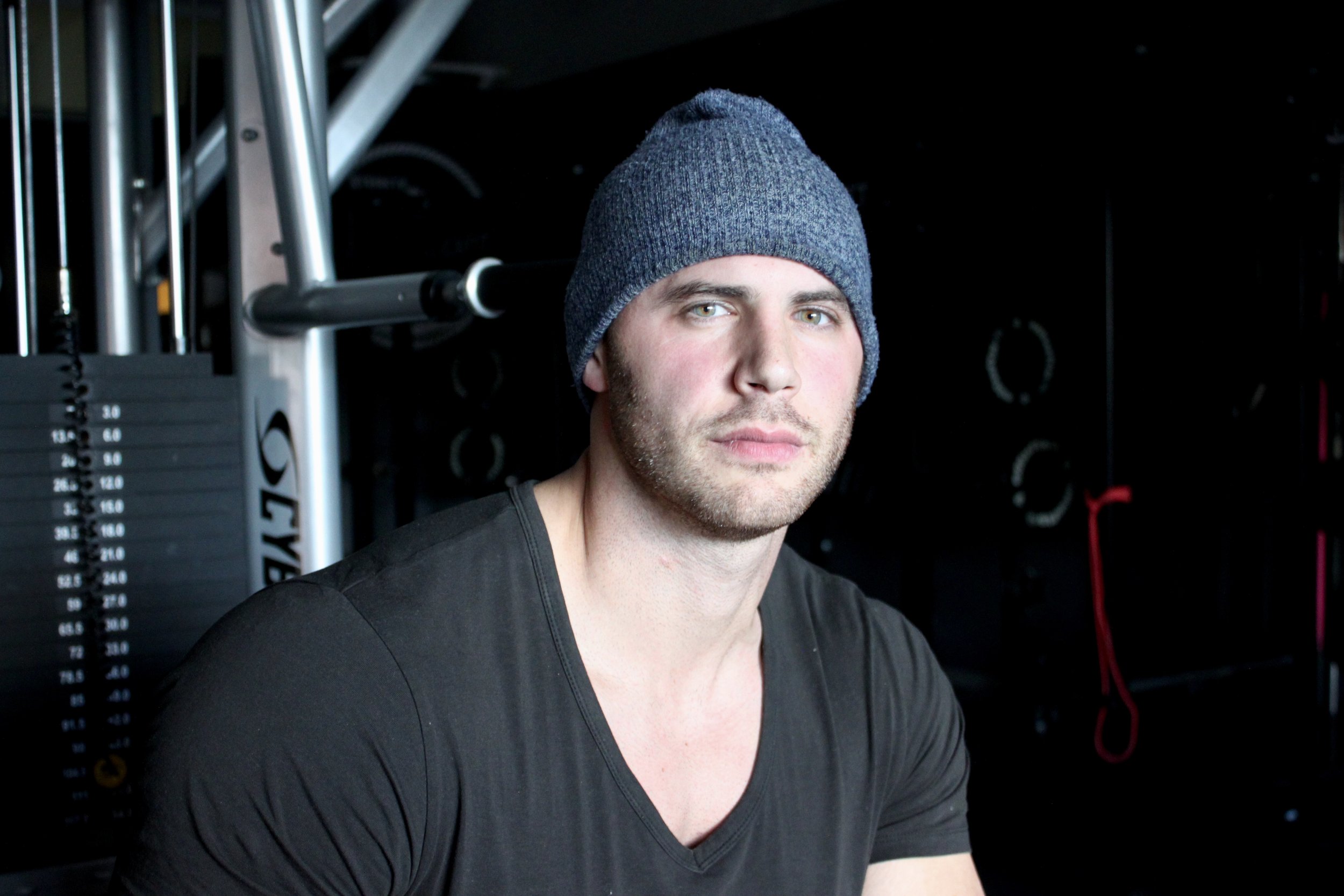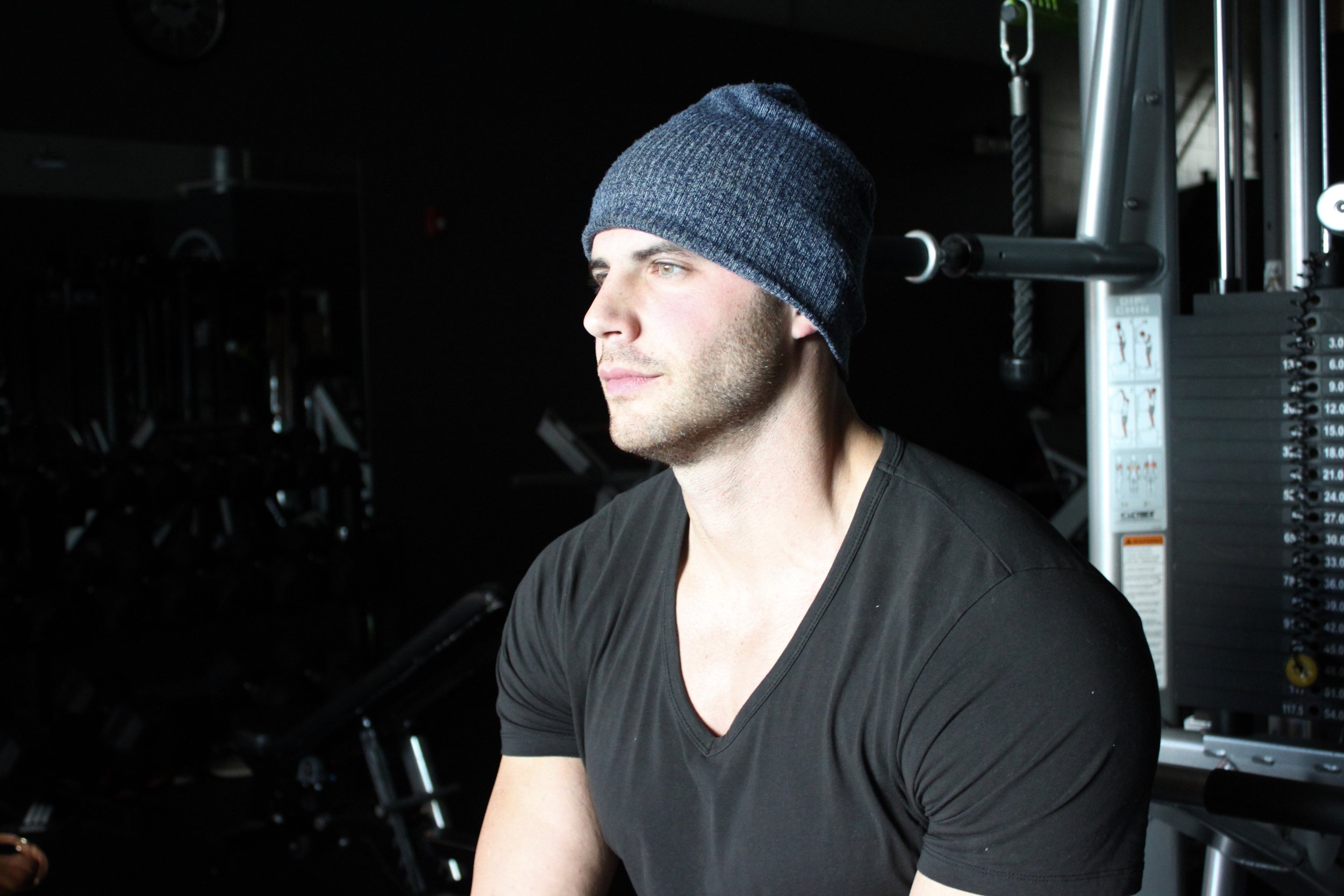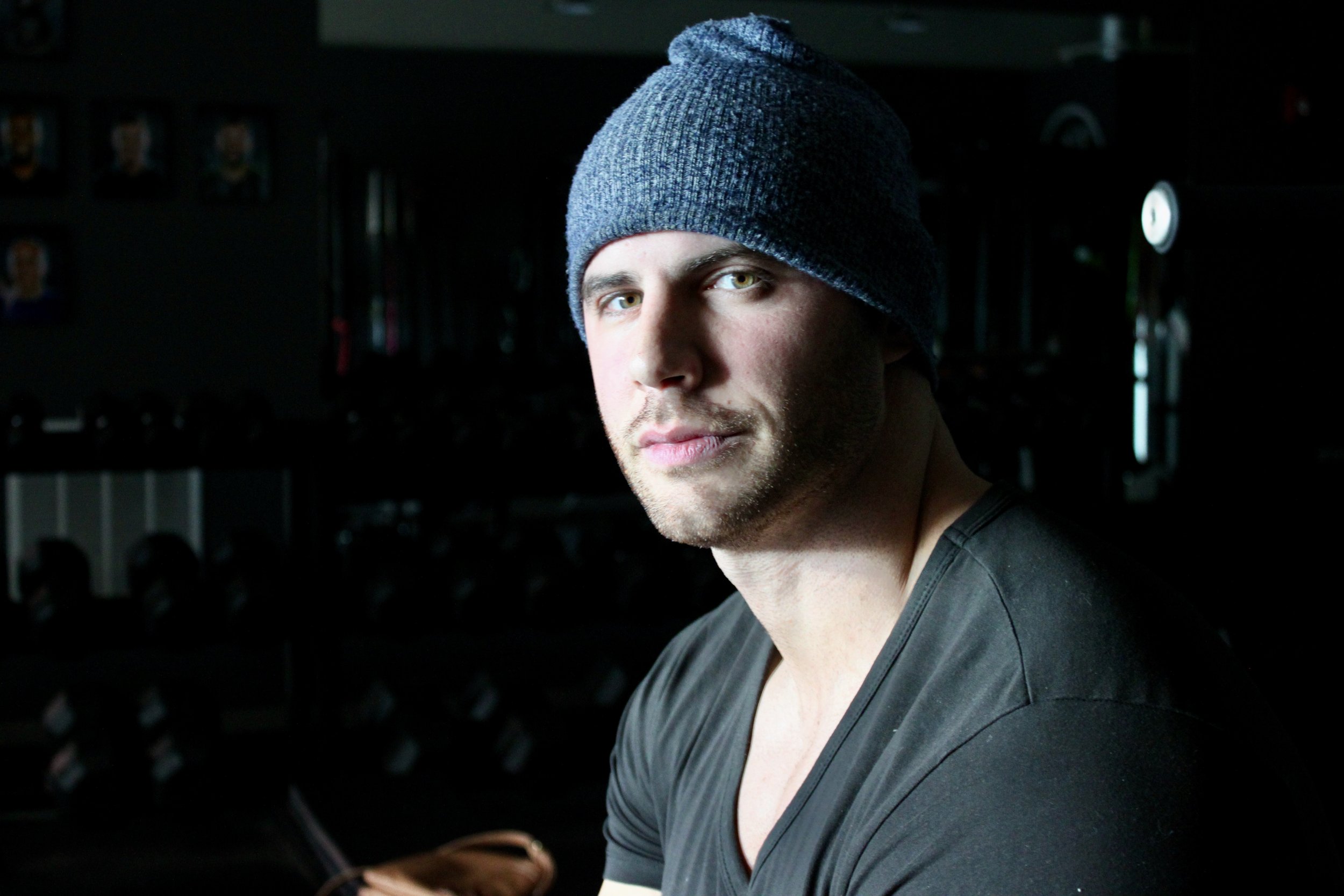Kyle Glickman
“They say OCD is chronic, meaning it's never going to go away. This is something you will live with forever. That's true. However, I can say that I'm in a position where OCD does not influence my life. I still have intrusive thoughts about every theme you could imagine. Those Intrusive thoughts still generate anxiety. However, what I would consider recovery for those suffering with OCD is having the skill set of how you respond to those thoughts. The ability to have all of the exact same intrusive thoughts or obsessions but not perform compulsions — this takes work.”
NAMI: Have you ever had any mental health struggles?
KG: Up until the last few years of my life, I would have answered differently, as I was not educated on mental health. I would have told you, “No, I am mentally tough, and mental health is about not being weak." That being said, the last few years have changed my life. Now understanding what anxiety is and feels like, anxiety is something I've felt and dealt with my whole life. Whatever type of anxiety you want to call it - social, public speaking, specific phobias, general anxiety, separation etc. The specific diagnosis I have is Obsessive Compulsive Disorder and Generalized Anxiety Disorder.
My experience with OCD, anxiety and depression has been rough with very low lows. I have spent time in the psychiatric wing of a Strong Hospital for depression during the midst of the COVID shutdowns when my OCD was at its worst. However, I wouldn’t change it at all, as that's a part of me that's never going away, and I am happy to be here to help those who are questioning taking their own lives, telling them it can get better. I am very lucky to be living in the world today, with so many resources regarding OCD as it led me to finding the exact help that I needed being Genesee Valley Psychology run by Dr. Lauren Wadswroth and meeting my therapist, Lynn. They helped me through the entire process, which was brutally tough -- but life-changing.
NAMI: How have you healed and grown from your experiences? If you consider yourself in recovery from something, what does recovery mean to you?
KG: I have had many struggles that were brought on by OCD and anxiety. I was caught up in the debilitating compulsion cycle so badly that I had to stop working due to the depression it caused. That was the hardest decision I had to make in my life. I love what I do and couldn't imagine doing anything else. It's so much more than personal training to me. I have the ability to help people realize the potential they have and then surpass what they ever thought they could accomplish. To watch what happens in the gym then translate into their lives is why I do what I do. I was at a point where I wasn't able to do that, and needed to take care of myself, and it was unbelievably hard to walk away from that for almost six months.
Without a doubt I have grown from that experience. As hard as it was then, I look back at my journey through OCD and tell myself how grateful I am for that, as it was a massive test that I was able to pass. It has helped make me who I am today, which makes me even more valuable to those with whom I get to work everyday. I have gained perspective and experience that is priceless.
They say OCD is chronic, meaning it's never going to go away. This is something you will live with forever. That's true. However, I can say that I'm in a position where OCD does not influence my life.
I still have intrusive thoughts about every theme you could imagine. Those Intrusive thoughts still generate anxiety. However, what I would consider recovery for those suffering with OCD is having the skill set of how you respond to those thoughts. The ability to have all of the exact same intrusive thoughts or obsessions but not perform compulsions. This takes work. Not only do you need to do the work with a trained therapist, you have to get back out into the world, take that skill set, and put it into practice. You have to live and make choices based on what you value and tell the world to bring it on. The more you put yourself into the situation, the easier learning to live with OCD becomes and eventually you won't even realize you had the thought.
NAMI: You are open about living with OCD, which is a condition that can manifest in a variety of ways. How does it manifest for you?
KG: OCD is a very complex disorder. It can manifest in so many different ways. Personally, I struggle with mental compulsions of checking and reassurance, doing very minimal physical compulsions. Something we learn in therapy for OCD is that "OCD's themes" are irrelevant. I've always felt there is some truth to that, but the OCD brain picks on topics / themes that are of importance / relevance to the sufferer. Otherwise it wouldn’t be an obsession. OCD themes are ego dystonic, meaning they go against everything you value and love, which again is why this disorder can be so debilitating. However, once the sufferer understands it’s just a theme, and a thought is just a thought, the cycle can be broken.
Personally the major theme of OCD I struggle with is harmful and sexually intrusive thoughts, while also struggling with depersonalization when the anxiety is at its worst, which leads to intrusive thoughts of existentialism. The obsessions that can come with this can be very disturbing and gruesome - again why this disorder can be so terrible and why OCD has one of the highest rates of suicide.
An example could be: watching a TV show and having the thought of: "That's a good looking guy. Why did I just think that? Am I attracted to guys? I never have been. Why did I think he was good looking then? Am i questioning my sexuality?” Then I reassure myself: "I am married. I love my wife. I've never wanted to be with anyone else." However, the OCD cycle pushes harder: "But why did I think that?” Then, I need to validate that I'm attracted to women and not men, so I go out looking at women to make sure I am attracted to women. The reassurance gives you slight relief, but the brain seeks that feeling more just like the dopamine hit of someone suffering from addiction. It's the exact same chemical cycle.
At the end of the day, the way you attack the OCD cycle is the same no matter the theme or the compulsion. You go through exposure response prevention therapy (ERP). You expose yourself to the very thing you are debilitatingly afraid of and then work on not performing the compulsion, showing your brain there is nothing to be afraid of. Accepting the uncertainty that the obsession carries. Easier said than done.
NAMI: You have achieved career success and a sizable following on social media. In the past, did OCD ever hold you back? If so, how? On the opposite end of the spectrum, has OCD been a superpower in a way for you?
KG: I attribute a lot of my social media following to when I lived in NYC and was modeling for a lot of major clothing brands, as well as working for an international supplement company and being featured in a lot of ad campaigns. I have been working in a gym since I was 17 years old, and started personal training at the age of 20. To say my social anxiety and OCD was hard to work through would be an understatement. I worked for a commercial gym when starting out, and I would always try to avoid doing the personal training sessions. I would ask other trainers to cover them while I would clean the equipment and avoid conversations at all costs. I worked extremely hard to overcome the fear of social anxiety and still struggle with it from time to time now. What helped me the most with this was having great mentors giving me tools to be successful in holding those conversations, working extremely hard at the education of exercise physiology to build my confidence in knowing what I was talking about, and repetition of having the conversations with members and clients.
OCD is just like training in a gym. You build a plan that starts with small exposures and you work your way up to bigger exposures - just like a training program progresses from easier movements and lower volume to more complex movements with more intensity or volume. This is where I would absolutely say OCD has made me a better person and does absolutely give me a leg up on others. I have the ability to accept uncertainty about anything and everything now. I am willing to take calculated chances and risks that in the past I would have never thought about. I can have difficult conversations and know that nothing I experience now can come close to what I've been through. I have learned how to go towards anxiety and uncertainty. It's our brain's nature to run away from those sensations and feelings. Your brain is sending those signals because it doesn't feel safe. It's on you to make the deliberate change (which takes TONS of practice) to show your brain that everything is ok. You can use reverse psychology to empower yourself to go towards difficult anxiety provoking situations. "Dive headfirst into the anxiety" is something I tell myself. I may stumble on my words and feel embarrassed, but I will learn and come back better next time. Every time you're in that situation it will get a little bit easier.
NAMI: How do you protect your mental health? What forms of self-care do you practice? What keeps you balanced?
Fitness is my life's work. I spend 8-12 hours a day in my gym. I still use my own time to workout as a major balancing tool, but I need to remove myself from the gym throughout the day/week. I practice meditation daily and this is something I recommend for everyone, especially those suffering from OCD and anxiety. I also constantly take breaks where I walk outside with my dog and make sure to get sunlight and fresh air.
Second to going to therapy monthly, the biggest form of self care I do is continuing one of my favorite hobbies, which is art. I draw weekly on my own, and once a week I draw with a teacher in her studio. This is something I have always loved doing since I was a kid, and it's something I call a nonnegotiable. I love spending time in the art studio, listening to music, spending time with Sari and working on portraits and figure drawing. It’s something so different from what I do all week, and it’s the place where I feel the most calm in the world.
NAMI: What forms of mental health-related stigma have you observed or run into personally? Do you think stigma is still pervasive in the men’s fitness arena? As a personal trainer, how do you combat stigma?
Aside from hearing the uneducated stigma/misconception about OCD daily, I would say the major one is that males still feel they are less of a person for seeking help, which couldn't be further from the truth. In the fitness arena, I don’t think it's something that is specific to men. If we can continue to show that resources are available and strong prominent individuals are not afraid to show that they themselves have sought help and benefited, it will slowly help create a world where seeking highly trained therapists is the norm, not something people believe makes them look weak or taboo.
"Perfect people don’t exist. But flawed people, who have taken a walk through their own wounded psyche, reforged themselves and come out stronger? We’re the great hope for the species."

